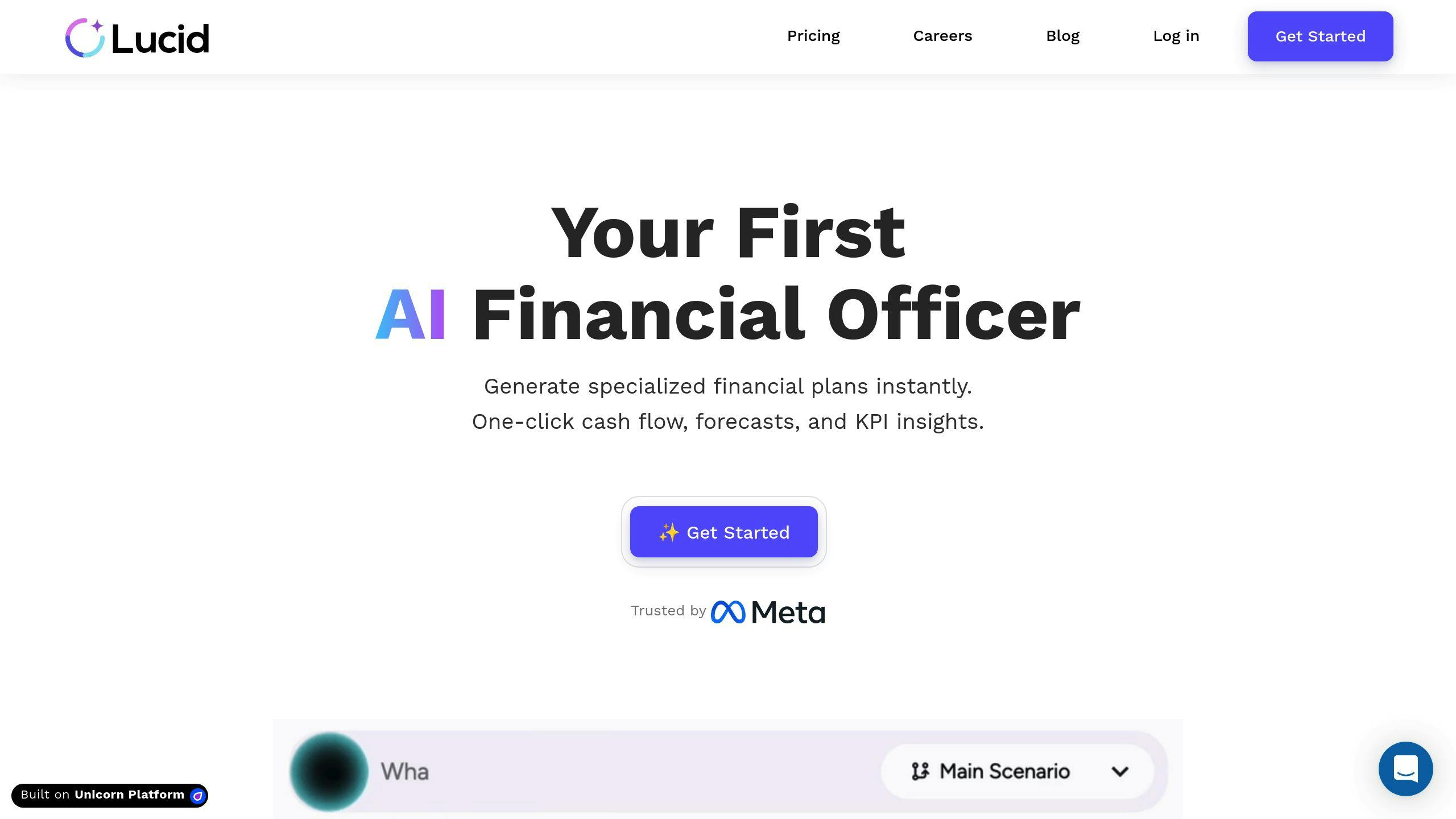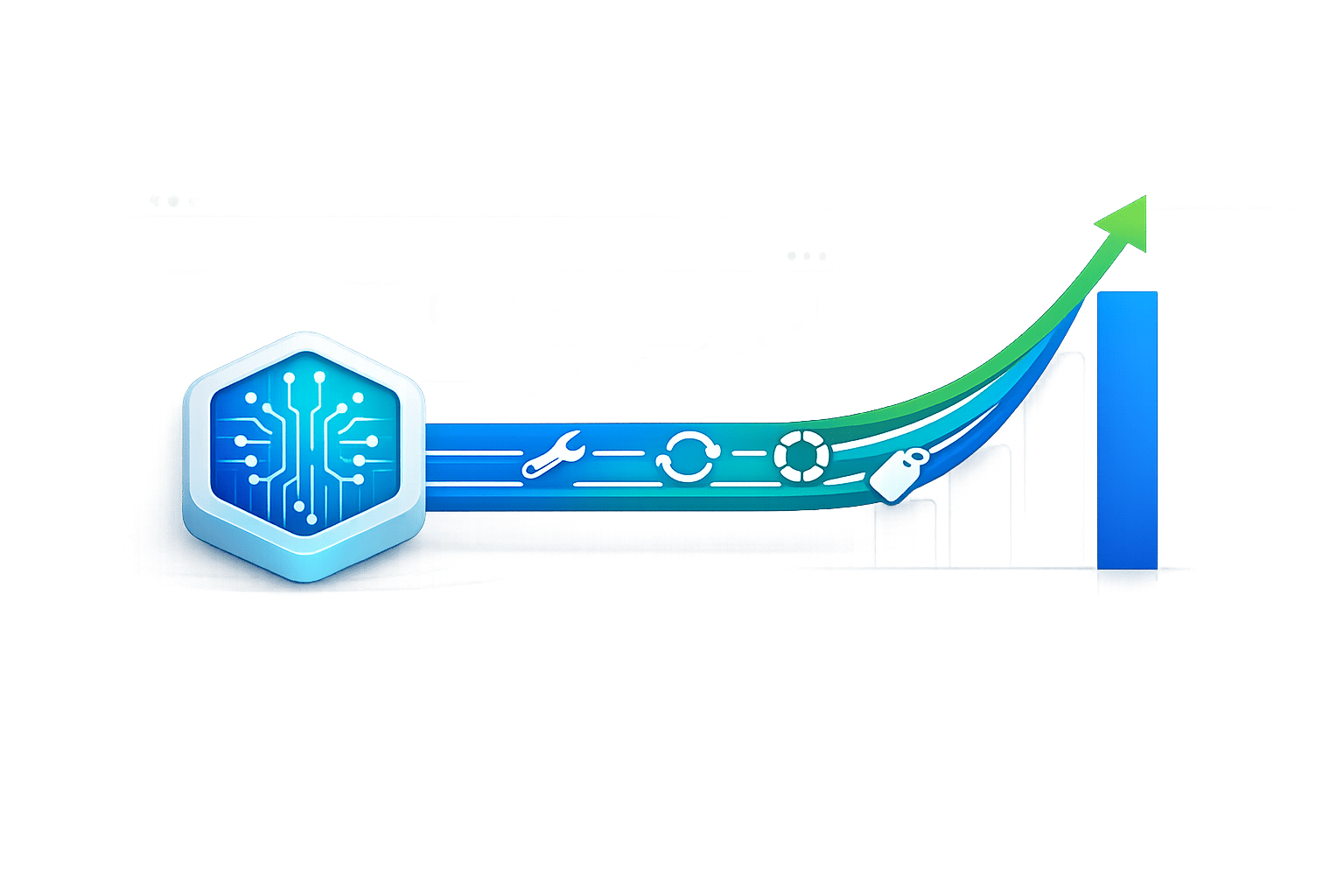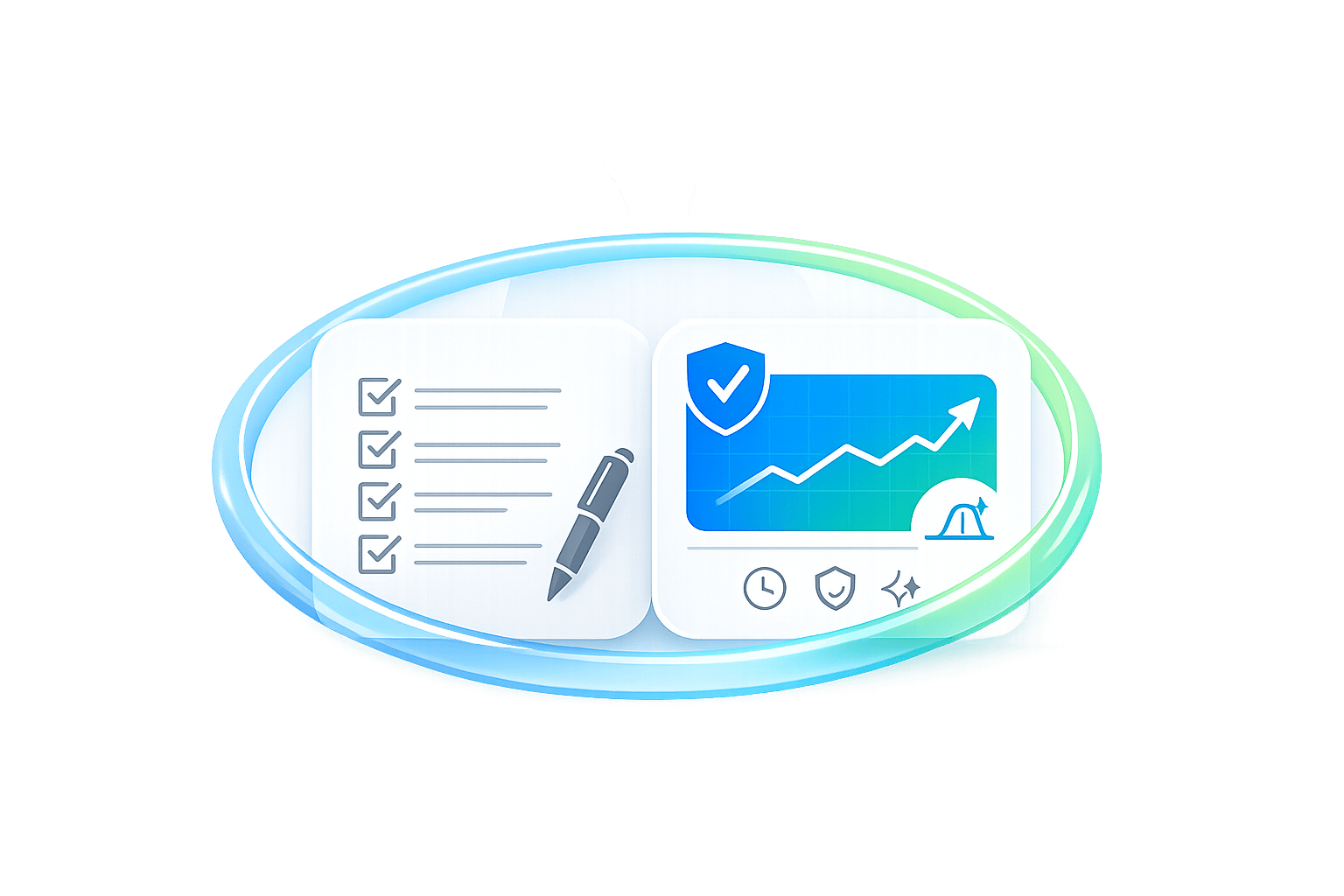AI is revolutionizing financial scenario planning by delivering real-time insights, improving forecast accuracy by 15%, and reducing errors by 20%. Businesses can now respond instantly to market changes, automate data analysis, and make smarter decisions based on dynamic, up-to-date information.
Key Benefits:
- Faster Decision-Making: AI processes data in real-time, eliminating delays.
- Improved Accuracy: AI reduces errors and adjusts forecasts automatically.
- Comprehensive Insights: Combines historical and real-time data for better planning.
- Simplified Data Management: Automates data collection and updates scenarios continuously.
Quick Comparison: AI vs. Traditional Methods
| Aspect | Traditional Approach | AI-Driven Approach |
|---|---|---|
| Data Processing | Manual, slow | Automated, real-time |
| Accuracy | Prone to errors | Highly precise |
| Speed | Time-consuming | Immediate results |
| Flexibility | Fixed models | Dynamic and adaptable |
| Insight Generation | Based on past data | Combines past and live data |
AI tools like Lucid Financials and platforms from IBM and Mastercard are already reshaping how businesses plan for uncertain futures. Start leveraging AI today to make faster, data-driven decisions and stay ahead in changing markets.
Rapid Scenario Planning with Generative AI
Benefits of Using AI for Scenario Planning
More Accurate Forecasts
AI takes financial forecasting to the next level by improving accuracy and cutting down on errors through advanced data analysis. For example, IBM's AI-powered tools help corporate finance teams predict quarterly earnings with greater precision, enabling smarter strategic decisions.
What’s more, AI adjusts to changing conditions in real time, making it an invaluable tool for financial planning in dynamic environments.
Handling Complex Scenarios in Real Time
Unlike traditional methods that can take days or weeks, AI updates forecasts instantly. This capability changes how businesses respond to market shifts and plan for potential scenarios.
Here’s a breakdown of how AI handles scenario planning:
| Aspect | AI Capability | Business Impact |
|---|---|---|
| Data Processing | Continuous analysis | Quick adaptation to changes |
| Model Updates | Automatic adjustments | Improved accuracy |
| Risk Assessment | Real-time evaluation | Better risk management |
| Variable Testing | Multiple scenario analysis | Broader, more informed planning |
This real-time complexity management allows for sharper, data-driven decisions.
Making Decisions Based on Data
AI revolutionizes decision-making by replacing guesswork with solid, data-backed insights. This shift is especially critical in financial planning, where decisions can have long-term effects.
Here’s how AI supports better decisions:
- Provides objective insights based on data
- Detects hidden patterns in key performance areas
- Reduces bias in forecasting
- Optimizes resource allocation strategies
How AI is Used in Financial Scenario Planning
Automating Data Collection and Analysis
AI simplifies the process of gathering and analyzing financial data by connecting various systems and automating the workflow. Instead of spending time on manual data collection, financial teams can now focus on interpreting the data and making strategic decisions.
Here's how AI improves data collection:
| Aspect | Traditional Method | AI-Powered Method |
|---|---|---|
| Speed | Takes days or weeks | Processes data in real-time |
| Data Sources | Limited to manual input | Pulls from integrated systems |
| Error Rate | High due to manual entry | Low with automated checks |
| Update Frequency | Periodic updates | Continuous updates |
This automation not only saves time but also ensures that financial scenarios are built on current, accurate data.
Keeping Scenarios Up-to-Date
AI enhances scenario planning by continuously updating financial models with fresh data. This ensures that strategies remain in sync with ever-changing market conditions. By processing large datasets from multiple sources, AI keeps forecasts relevant and accurate.
For example, platforms like Lucid Financials integrate with tools like QuickBooks and payroll systems. They automatically refresh financial scenarios in real-time, allowing businesses to adapt their plans as new information becomes available.
Leveraging Predictive Analytics for Smarter Forecasts
Predictive analytics powered by AI has transformed financial forecasting. Tools like IBM's corporate finance solutions now allow businesses to predict quarterly earnings with greater precision [1].
Key benefits of predictive analytics include:
- Detecting patterns in complex financial data
- Monitoring risks as they emerge
- Adjusting strategies dynamically based on predictions
sbb-itb-17e8ec9
How to Use AI Tools for Scenario Planning
Lucid Financials: A Tool for Financial Planning

Lucid Financials connects seamlessly with tools like QuickBooks, payroll systems, and banks to provide real-time data. This enables businesses to analyze scenarios, measure performance against industry standards, and create automated financial forecasts with ease.
Here’s a quick breakdown of its features and what they offer:
| Feature | What It Does |
|---|---|
| Real-time Integration | Keeps data updated automatically from multiple sources |
| Scenario Comparison | Allows side-by-side evaluation of different outcomes |
| Industry Benchmarks | Lets you measure performance against your sector |
| Automated Modeling | Creates AI-driven financial projections |
Testing Scenarios and Key Variables
AI tools help pinpoint the most critical financial factors and show how they influence outcomes, boosting forecast accuracy by 15% and cutting errors by 20% [1]. For instance, Mastercard’s decision intelligence platform uses real-time transaction data to predict trends and guide investment decisions. This kind of analysis allows businesses to evaluate multiple scenarios at once, taking into account external factors that might affect their financial results.
Steps to Start Using AI Tools
AI tools like Lucid Financials can simplify scenario planning. Here’s how to get started:
-
Platform Selection and Integration
- Pick a platform that works with your accounting, payroll, and banking tools.
- Look for options with good support and flexible pricing.
- Set up automated data refresh schedules to keep everything current.
-
Define Key Metrics
- Focus on factors like revenue drivers, costs, market trends, and industry-specific indicators.
- Regularly validate AI-generated forecasts to improve their accuracy over time.
Conclusion: AI's Impact on Scenario Planning
Summary of Key Points
AI has changed the way businesses tackle scenario planning by introducing real-time data analysis and advanced tools. These technologies have replaced older methods, offering faster and more precise scenario evaluations.
Today's AI platforms are transforming how companies approach complex financial scenarios. This shift to AI-driven tools has reshaped how data is processed, scenarios are analyzed, and strategic decisions are made.
Looking ahead, the role of AI in financial planning is set to grow, bringing even more advancements.
The Future of AI in Financial Planning
AI continues to reshape financial scenario planning. As OneStream Software highlights:
"AI and machine learning can help Finance better prepare for what's to come with more effective scenario planning" [3]
Platforms like Lucid Financials showcase this transformation, showing how integrated AI tools are becoming a cornerstone of modern financial planning. Here's how AI is making an impact and what the future holds:
| Capability | Current Impact | Future Potential |
|---|---|---|
| Data Processing | Real-time analysis of multiple data sources | Advanced pattern detection across datasets |
| Forecasting | Automated scenario generation | Use of more sophisticated predictive models |
| Decision Support | Enhanced scenario generation | AI-guided strategic recommendations |
| Collaboration | Unified data sharing across teams | Better organizational decision-making |
The future of financial planning will likely involve even more advanced AI solutions capable of handling intricate scenarios while delivering deeper insights. Adopting these tools allows businesses to make smarter decisions and remain competitive in fast-changing markets [2].
To keep up, finance teams need to develop the skills to implement and interpret AI technologies effectively [2][3].
FAQs
Can AI do financial forecasting?
AI plays a powerful role in financial forecasting, especially when it comes to dynamic scenario analysis and planning. It helps businesses make better decisions by:
- Analyzing large datasets in real time
- Spotting market patterns and trends
- Automating data collection from various sources
- Updating scenarios as conditions shift
- Using predictive analytics to evaluate risks
Examples of its impact are everywhere. Mastercard's decision intelligence platform uses AI to analyze transactions in real time, improving scenario planning [1]. Similarly, IBM's AI tools assist finance teams in creating more accurate quarterly forecasts [1].
OneStream Software highlights this advantage:
"AI and machine learning can help Finance better prepare for what's to come with more effective scenario planning" [3]


